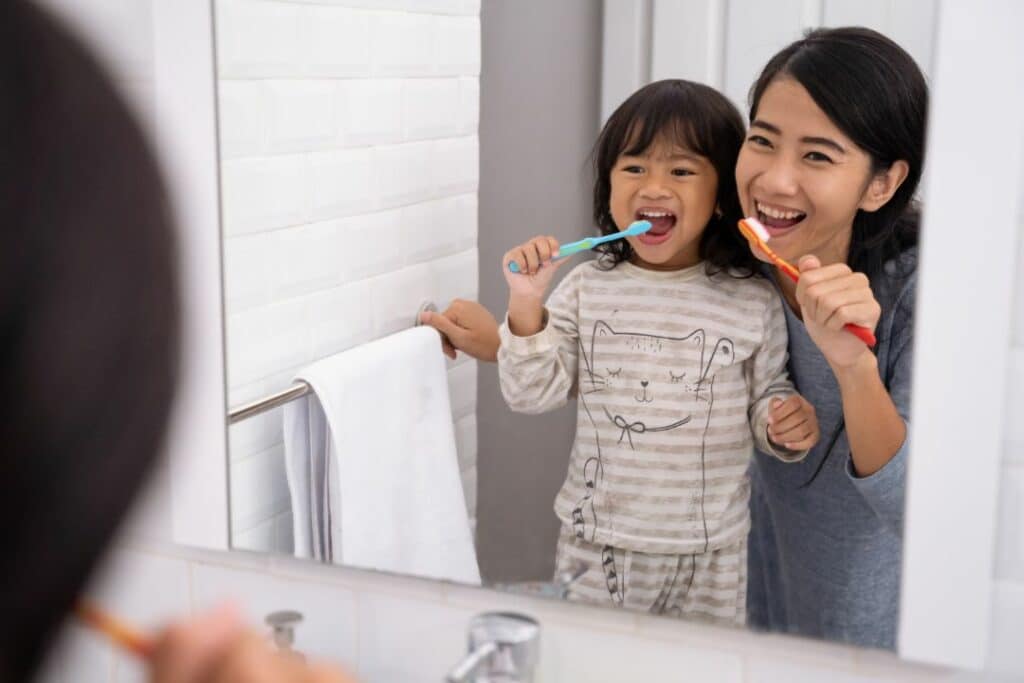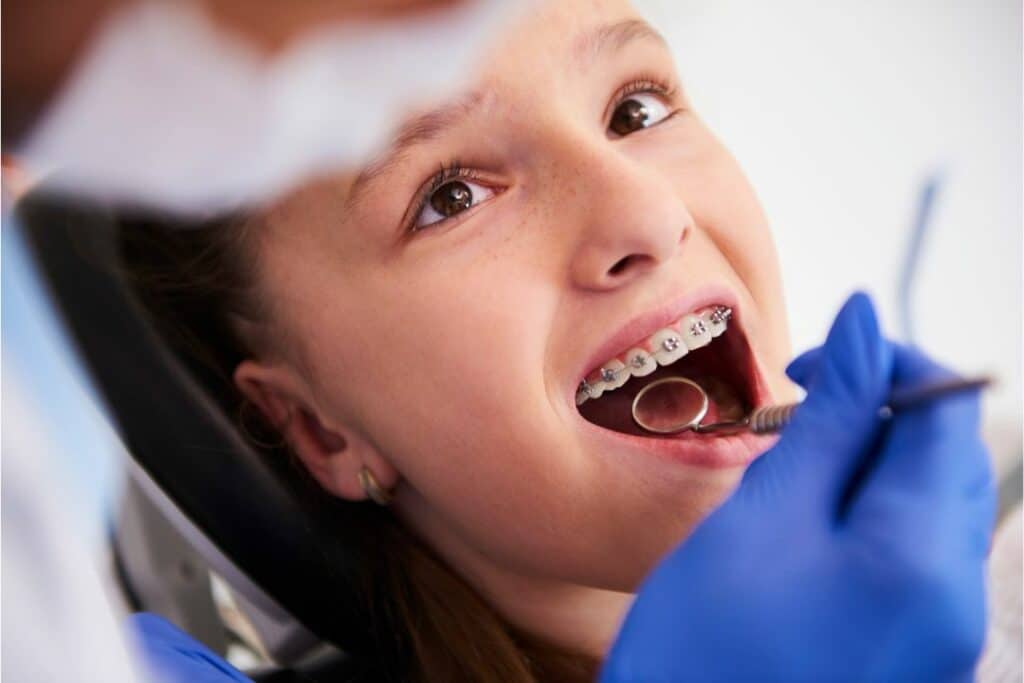A Complete Guide for Parents in New Zealand
Healthy teeth are essential to a child’s overall health and well-being. Good oral care supports proper speech development, makes eating more enjoyable, and builds confidence in their smile. Establishing strong dental care habits early in life is one of the best investments you can make in your child’s long-term health.
In this guide, we’ll cover:
- When to start cleaning your baby’s mouth
- Brushing and flossing milestones
- How often kids should see the dentist
- Cavity prevention strategies
- Orthodontics and teeth alignment
- Nutrition tips for strong teeth
- Common mistakes to avoid
- Expert-backed FAQs
Whether you’re a first-time parent or looking for updated advice, these tips are designed for families in New Zealand and based on recommendations from organisations such as the New Zealand Dental Association (NZDA), World Health Organization (WHO), and current paediatric dentistry research.
Why Early Dental Care Matters

Children’s teeth, both baby (primary) and permanent (adult), are vulnerable to dental caries (tooth decay), the most common chronic disease in children worldwide (CDC). Left untreated, tooth decay can cause pain, infection, and even affect a child’s growth, speech, and learning.
In New Zealand, free basic dental care is available for children from birth until they turn 18 through the Community Oral Health Service (Ministry of Health). But prevention starts at home, long before your child’s first dental appointment.
When to Start Cleaning Your Baby’s Mouth
Dental care begins before the first tooth appears.
Before teeth emerge:
- Gently wipe your baby’s gums with a soft, damp cloth after feeding to remove bacteria.
- This helps prevent early decay, especially from prolonged exposure to milk sugars.
When the first tooth appears:
- Use a small, soft-bristled toothbrush designed for infants.
- Apply a grain-of-rice-sized smear of fluoride toothpaste (NZDA guidelines).
- Brush twice daily – once in the morning and once before bed.
When teeth begin touching:
- Start flossing once a day to prevent plaque buildup between teeth.
Brushing & Flossing by Age
| Age | Toothpaste Amount | Brushing | Flossing | Supervision Needed |
| Birth–12 months | None (clean gums) | Soft cloth | None | Full supervision |
| 12–36 months | Grain of rice | Twice daily | Start when teeth touch | Full supervision |
| 3–6 years | Pea-sized | Twice daily | Once daily | Supervise |
| 7–8 years | Pea-sized | Twice daily | Once daily | Spot-check technique |
| 9+ years | Pea-sized | Twice daily | Once daily | Independent but monitored |
How Often Should Children See a Dentist?

The American Academy of Pediatric Dentistry and NZ dental experts recommend:
- First visit by age 1 or within 6 months of the first tooth appearing.
- Regular check-ups once every 6–12 months thereafter.
Early visits help:
- Detect problems before they worsen.
- Teach proper brushing/flossing techniques.
- Build a positive, fear-free relationship with dental care.
Preventing Cavities: Daily Habits That Work
Cavities occur when plaque bacteria feed on sugars, producing acids that erode enamel (Dental caries).
Key prevention strategies:
- Limit sugary snacks and drinks – especially juice, fizzy drinks, and sticky sweets like lollies or dried fruit.
- Rinse with water after sugary foods.
- Choose tooth-friendly snacks: cheese, nuts, fresh vegetables, and yoghurt.
- Brush and floss daily (see table above).
- Fluoride – essential for strengthening enamel and reversing early decay.
The Role of Diet in Strong Teeth
Nutrition is just as important as brushing.
Helpful foods for kids’ teeth:
- Dairy products for calcium and phosphorus.
- Crunchy fruit and vegetables to stimulate saliva production.
- Water as the main drink between meals.
Limit:
- Sugary and starchy snacks.
- Flavoured milk and juice – often high in added sugars.
Orthodontics: When to Check for Alignment

Around age 7, your dentist can assess whether orthodontic treatment may be needed. Signs may include:
- Crowding or gaps between teeth
- Early or late loss of baby teeth
- Difficulty chewing or biting
- Mouth breathing or speech issues
At Hamilton Dental Centre, Dr. Dave Blom has over 25 years’ experience in orthodontic cases and works closely with our orthodontic team to deliver tailored treatment for each child.
Orthodontics typically refers to the fitting of braces to help to straighten poorly aligned teeth. When teeth are misaligned, this can lead to a number of oral health issues including:
- Poor breathing patterns
- Hard to clean teeth
- Speech difficulty
- Low self-esteem due to crooked teeth
Kids from the age of seven and upwards can be eligible for orthodontic work if they are seeing early issues with the way their teeth are aligned.
Here at Hamilton Dental Centre, we are highly experienced in dealing with children and young people and make them feel as comfortable as possible when they visit us. To find out more about dental care for children, talk to one of the team today.
Common Mistakes Parents Make
- Letting kids brush unsupervised too early – leads to missed spots.
- Giving bedtime bottles with milk or juice – can cause severe decay (bottle caries).
- Skipping flossing – even baby teeth need flossing once they touch.
- Waiting too long for the first dental visit – missing early prevention opportunities.
School Dental Services in New Zealand
School dental therapists provide free care under the School Dental Service, but this shouldn’t replace at-home care. Parents should still monitor diet and brushing habits daily.
Frequently Asked Questions
When should I start cleaning my baby’s mouth?
Dental care begins before the first tooth appears. Wipe gums with a soft cloth after feeding. Once teeth appear, use a small infant toothbrush and fluoride toothpaste.
How can I make brushing fun?
Play a two-minute song, use colourful toothbrushes, or let your child choose their toothpaste flavour (suitable for their age).
What foods should kids avoid for better oral health?
Limit sugary snacks, fizzy drinks, sticky lollies, and dried fruit. Offer water instead of juice.
Should my child use mouthwash?
Most children under 6 should avoid mouthwash unless recommended by a dentist due to the risk of swallowing.
Is thumb sucking harmful?
Occasional thumb sucking in toddlers is common, but prolonged sucking past age 4 can affect tooth alignment.
Related Posts
Site map
Services
Contact Us
T: 07 854 8905
E: info@thehdc.co.nz
3/111 Thomas Road,
Rototuna, Hamilton
copyright © 2025 Hamilton Dental Centre | Credit Terms | Web development by Digital Hothouse

